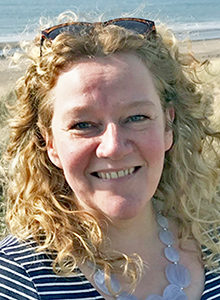Throughout my life, I have faced significant challenges. These were most notable as a child, particularly in terms of social and sensory issues. My sensory issues used to be extreme. I couldn’t bear to be in a room where any cupboard doors were open, the sight of certain fruits caused me strong anxiety because I would imagine what their skin would feel like, and such sounds as the scraping of plates were enough to send me running. I suffered migraines from the age of five and spent at least one day a week lying in the darkness waiting for the pain and nausea to pass. My social issues were debilitating. I hated being anywhere other than home and, with the exception of a few friends my own age, couldn’t stand coming into contact with other people. I was labelled as “shy” because I rarely opened my mouth and had no idea what to say or what the conversation was about. I worried incessantly about anything it was possible to worry about, and needed a very clear idea about what was happening in my day to help me avoid going into a tailspin.

Some of these issues lessened slightly as I got older. Most of my issues remained, but I became highly skilled at camouflaging the levels of distress I experienced. When I discovered alcohol, it allowed me to present a front which effectively allowed me to hide who I was and what I was going through, to the extent that I “passed” as being nothing out of the ordinary. I also used alcohol as a coping mechanism, for my severe anxiety and to keep me going when I experienced exhaustion and burnout.
My university years were fueled by anxiety and addiction, and I experienced a complete breakdown in my twenties, after failing to receive the degree mark I’d worked towards for the preceding four years. After that, I muddled through life, displaying a pattern of short-lived relationships and careers, which usually came to abrupt ends, after my anxiety became too overwhelming, or I fell out with a manager.
By the time I’d trained as a therapist and started a successful practice, I had begun to shape a life which had enough flexibility to meet my mental needs in a healthier way. Ongoing therapy also helped me implement solutions to my issues and to look after myself better. However, instinctively, I felt that there was a missing piece of the puzzle.
After a visit to a new therapist, which was prompted by the fact that I was struggling with managing a change in my circumstances and with daily responsibilities, she suggested that I might be autistic. Initially, I was shocked. I knew nothing about autism and certainly didn’t feel that I fitted with what I did know. However, she set me on a path, initially, to finding out as much as I could about autism and finally to receiving a diagnosis, in my late forties, which confirmed that I was autistic.
The first few months following my diagnosis were tumultuous, and it took me a while to come to terms with it. One day I’d feel like I had all the answers I’d been looking for throughout my life. Another day I’d feel shocked and even embarrassed. At times, I felt depressed that I had struggled so much and for so long, and aggrieved for the life I might have had if I’d had the awareness I’d recently gained. I liked knowing that there was a reason for the issues I faced but I didn’t like labelling them as autistic. For a long time, I found it very hard to reconcile the facts that I’d lived a whole life, was a mother, a wife, a business owner, and I had autism. I didn’t quite know how to use the information in a productive way.
As I let the diagnosis sink in, though, I found that I had started to think about things differently. Instead of constantly trying to find a solution to my issues, and criticizing myself for being less able than most people when it came to certain situations, I found myself accepting that certain situations were fundamentally harder for me to deal with. The funny thing was that, once I accepted that certain things were harder for me than they were for most people, I found some of those things became a bit easier. By not trying to reach unattainable standards, I found ways of being which were ok. And I was ok with that. One example was how I interact socially. After my diagnosis, instead of pushing myself to keep my mask up all the time, I allowed myself to admit if I was lost in a conversation, or to say something silly or ask for clarification without that leading to hours of rumination.
For the first time in my life, my anxiety levels reduced significantly. Post-diagnosis, there simply wasn’t so much stuff to worry about. I knew why things were difficult; the frustrating mysteries of my life had disappeared. I knew when I needed help and how to help myself.
Most importantly, I now accept myself. I’m proud of what I’ve achieved. I’m proud of a brain which processes things in the way it does. I don’t see my autism as inhibiting me in any way. It’s always been there. But now, I can acknowledge it and take ownership of the way I process and understand the world.
Claire Jack, PhD, is an autistic therapist and training provider who provides life coaching for autistic women. Claire is the author of “Women with Autism: accepting and embracing Autism Spectrum Disorder as you move towards an authentic life,” “Level 1 Autistic Teens: A solution-focused approach to parenting,” and “Raised by a Narcissist: 7 steps to healing the wounds of a toxic childhood.” For more information, visit www.drclairejack.com or email claire@academyinnermind.co.uk.





